The content of the article
Representatives of the cat family are distinguished by the ability to meow. The pet meets the owners with its sonorous voice, similarly asks for food and expresses its emotions. When the animal loses its ability to meow, excited owners immediately begin to sound the alarm. It is not clear for what reasons this happened and how to help your four-legged friend. Let's figure it out together if for some reason you cannot take the animal to the vet.
Possible reasons
- The animal may lose the ability to "speak", there is an explanation for this. As a rule, there are a lot of reasons. It is difficult to identify for sure what caused the loss of voice. Only a specialist after the examination will say for sure.
- There are aspects that do not entail danger. But there are also certain reasons that harm the animal. Among them are diseases of an infectious and viral nature. This list includes carnivore plague, otitis media, rhinitis, pharyngitis with laryngitis, as well as calcivirosis or rhinotracheitis.
- The animal may lose its voice due to a developing allergic reaction, a foreign object stuck, poisoning by food or toxic fumes, permanent presence in a room contaminated with smoke or when infected with rabies.
Allergy
- With the development of a negative reaction, the larynx swells. The voice disappears, the animal becomes difficult to breathe. If the allergic reaction is in an advanced stage, the larynx can narrow so much that the pet simply can not breathe and die.
- Urgently go to the veterinarian is necessary at the slightest suspicion of deviations in the state of health. Even with slight swelling, the cat is difficult to swallow, respectively, he can not drink and eat. On this basis, the pet is nervous, but will not be able to report.
- To identify that this is swelling, you need to pay attention to breathing. If the animal has a serious shortness of breath, first the voice will be hoarse, then completely disappear.
Poisoning
- Fluffy pets are poisoned by food, as well as toxic substances. If the animal stepped on something toxic, and then began to lick itself (including paws), the likelihood of poisoning is high. A person does not even suspect that some surfaces in the apartment are covered with toxins. It can be the remains of perfumes, household chemicals or cosmetics.
- Flea, ticks, mosquitoes, cockroaches are also harmful. Some disinfectants, such as bleach, will also cause harm. The owner should be especially careful and make sure that the animal is not in the wrong places.
- If a four-legged pet regularly visits the street, after walking it is necessary to wash his paws and preferably the lower abdomen. Also poisoning can be caused by volatile vapors from solvent, paint, varnish for fixing hair or painting nails.
Rabies
- A dangerous viral disease that entails a fatal outcome. Affects the central nervous system of the cat, which leads to loss of voice and other dangers. The virus is transmitted to humans, so the owner needs to be alert. Animals are vaccinated against rabies. However, if the vaccine was not delivered, it is necessary to recognize the threat by the following symptoms.
- So, the animal loses the ability to talk. Non-standard behavior combining aggression and affection is also observed. The cat may look apathetic, refuse to drink and eat. In severe cases, paralysis is observed. Signs are felt after a couple of days after infection.
Foreign object in the mouth
- The most common reason leading to the fact that the furry friend is deprived of the ability to meow and give other signs of voice.If the walls of the larynx have been damaged, this can lead to damage to the esophagus and upper respiratory tract.
- A fish bone, a small children's toy, a needle from a Christmas tree, and branches act as a foreign object. With damage to the mucous membranes of the larynx, an inflammatory process develops. This is extremely dangerous, so you need to lead the pet to a specialist.
Other reasons
- It's no secret that any four-legged friend needs constant access to clean and fresh water. If for some reason the animal does not receive the required amount of fluid, its larynx begins to dry out. The individual should not feel thirsty.
- It is worth noting that the cat's body loses fluid at times faster and dehydrates, unlike humans. The animal loses a lot of moisture when licking. As a result, all this leads to weakness, and accordingly, loss of voice. Symptoms of this will signal the weakness of the cat and a rare visit to the toilet.
- Sometimes an animal simply because of weakness is unable to cast a voice. Often this happens when a four-legged friend departs from anesthesia after surgery. After castration or sterilization, the animal can leave up to 2 days. On the first day, the cat shows a strong weakness, he is simply not able to cast his voice. At such times, individuals are even hard to keep their heads on weight.
- Often the cause of silence of your pet can be emotional emotional experiences. Similar situations often happen after moving. Also, the pet may become silent due to the appearance of a new animal in the house. Most adults stop meowing when owners bring kittens.
What to do
- If you are faced with the fact that your four-legged friend suddenly stopped meowing, watch him carefully. In some cases, it turns out to identify the symptoms of certain diseases. If you can understand what’s the matter, you can help the animal.
- Often, against the background of the development of cough, runny nose and sneezing, the pet’s voice almost completely disappears. In most cases, it does not make sounds due to pain in the sore throat. Inspect the animal and measure the temperature. If the suspicions are confirmed, go to the veterinarian for help.
- The specialist in the clinic will ask you the same questions. However, if you know exactly what is happening, you should not rush to help the cat yourself. If you self-medicate, the condition of the animal can worsen at times. Therefore, in any case, at the slightest opportunity, go to the veterinarian.
- It happens that it’s not always possible to immediately go to the clinic. By the way, there may be a night in the yard. In this case, try to give your pet first aid. However, in the morning you still have to go to the vet. Keep in mind that depending on the situation and symptoms you need to know what to do first.
Remember that first aid should be given to the cat if you know exactly why the voice was lost. If necessary, ventilate the room and eliminate all irritants. Transfer the animal to a cozy and warm room, where it will be completely safe. If possible, try to contact the veterinarian as soon as possible and take the four friends to the clinic.

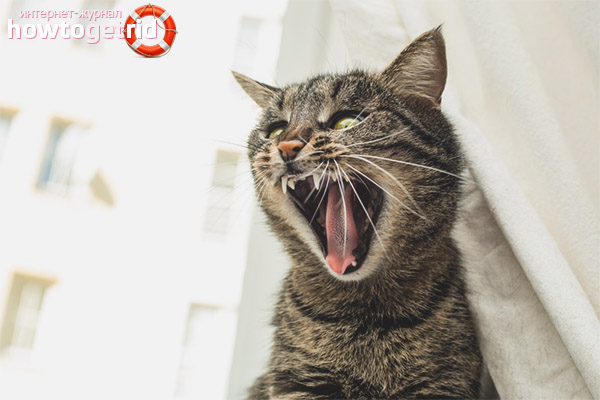
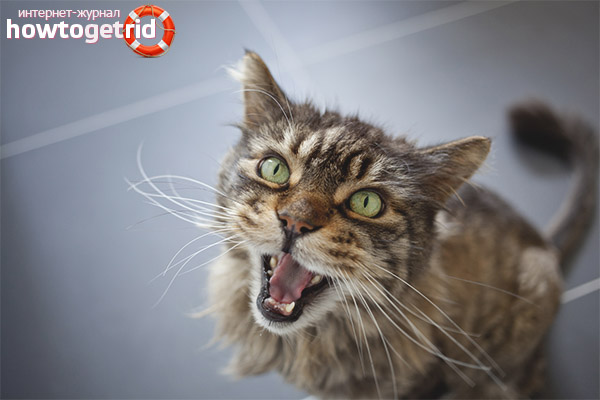
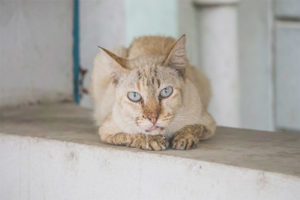
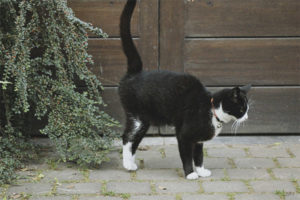



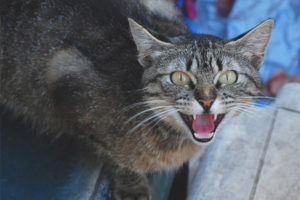
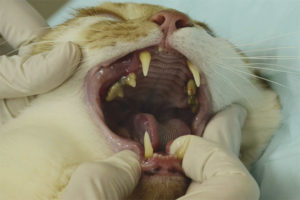
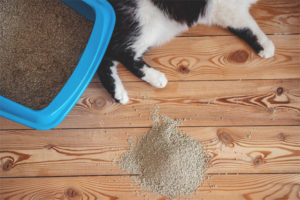
Submit